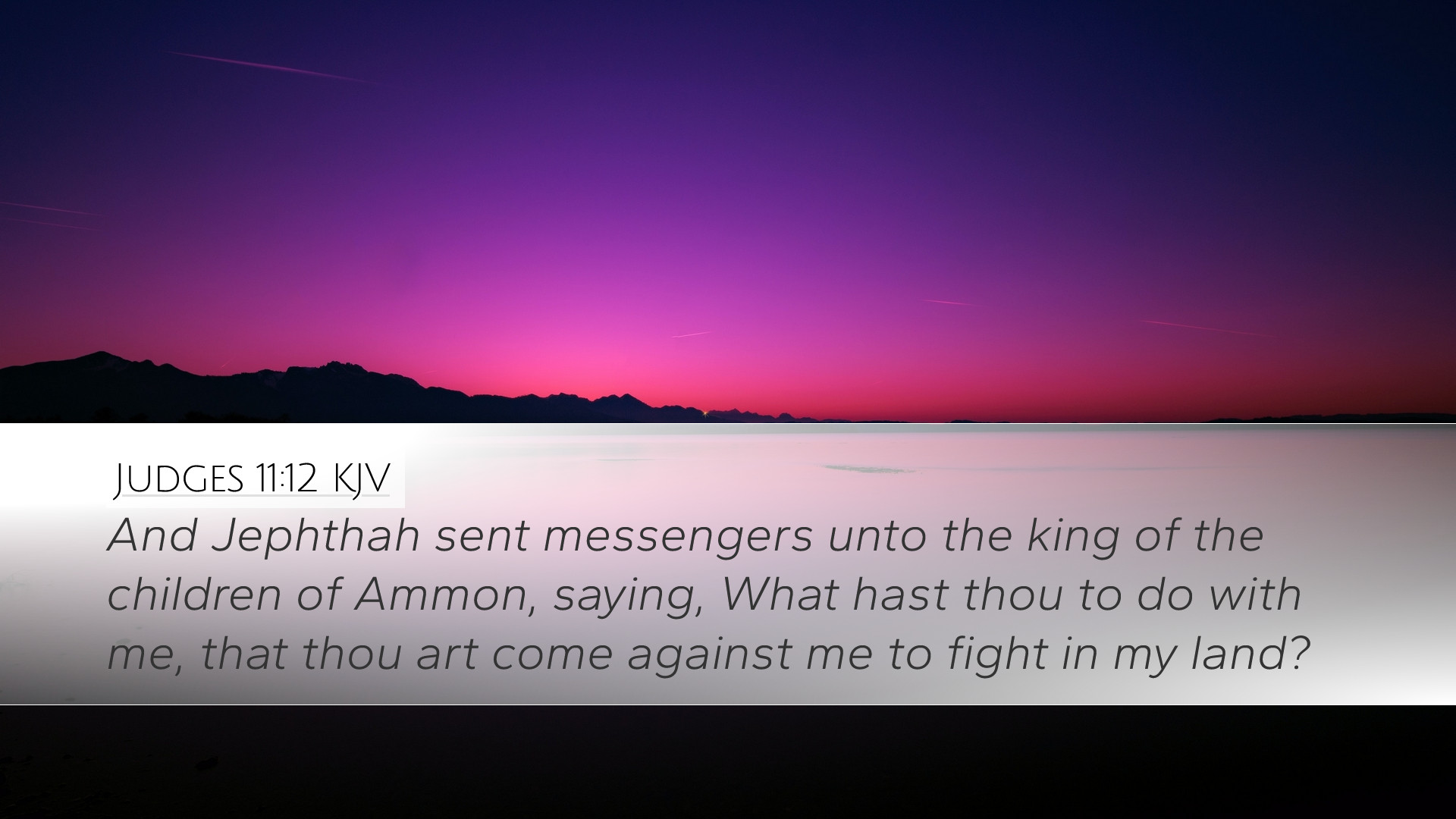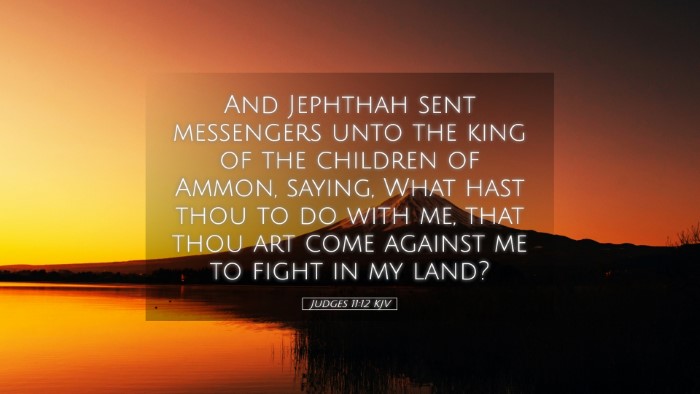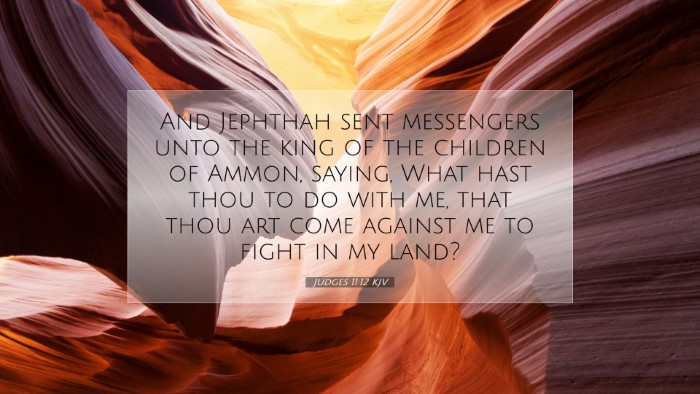Commentary on Judges 11:12
Verse Text: "And Jephthah sent messengers unto the king of the children of Ammon, saying, What hast thou to do with me, that thou art come against me to fight in my land?"
Overview
This verse introduces a significant moment in the narrative of Judges, where Jephthah, a leader chosen by God to deliver Israel from the oppressive Ammonites, seeks to understand the motives behind the Ammonite king's aggression. The dialogue reflects key themes of leadership, covenant, and the socio-political landscape of the time, which are critical for deeper theological reflection.
Contextual Analysis
The events surrounding Judges 11 occur during a period of moral and social upheaval in Israel, as the nation repeatedly strayed from God's covenant, leading to cycles of sin and judgment. Jephthah himself is a product of these turbulent times, being the son of a Gileadite harlot, and initially rejected by his family.
The Role of Jephthah
Jephthah’s rise to leadership illustrates God’s sovereignty in choosing unlikely figures for His purposes. Commentators like Matthew Henry point out that despite his social stigma, God honors Jephthah’s faith and his willingness to call upon the Lord. Jephthah's inquiry to the Ammonite king suggests a desire for peace and a strong leadership quality of addressing issues directly rather than invoking warfare without dialogue.
Key Themes
- Identity and Legacy: Jephthah’s identity, as highlighted by Adam Clarke, emerges from a mixture of disgrace and divine appointment. His question not only addresses the immediate threat but also reflects his understanding of his identity and divine mission.
- Theological Reflection: The actions of Jephthah offer rich insights into the concept of divine sovereignty and human agency. As Barnes notes, while God’s plans are unshakeable, human interactions often complicate the fulfillment of these plans, as seen in this encounter.
- Peace Versus Conflict: The text invites readers to consider the principles of seeking peace in the face of conflict. Jephthah’s approach emphasizes negotiation before resorting to battle—a principle that resonates deeply within pastoral ministry today.
Interpretation of the Ammonite King’s Challenge
The Ammonite king’s challenge indicates a complex political landscape; he embodies the hostile nations surrounding Israel, prompting reflections on loyalty, territory, and identity. As noted by Clarke, the question posed by Jephthah encapsulates a broader theological inquiry into the nature of conflict and the role God plays in national struggles.
Application for Modern Readers
For pastors, theologians, and students of Scripture, this verse and its implications serve as a powerful reminder of the importance of dialogue in conflict resolution. In a world often driven by divisive rhetoric, Jephthah’s example encourages individuals and communities to seek understanding before engaging in hostilities.
Challenges to Leadership
Jephthah’s leadership challenges modern notions of success. His background and circumstances illustrate that power often comes through adversity and faithfulness to one's calling. This calls the church to recognize and embrace leaders who may not fit traditional molds but are nevertheless appointed by God.
Concluding Thoughts
As we reflect upon Judges 11:12, it becomes evident that this verse transcends its historical context. The theological constructs surrounding it align with the ongoing narrative of redemption seen throughout Scripture. Seeking to understand our adversaries, emphasizing peace, and remaining faithful to God’s call are principles that continue to resonate today.


